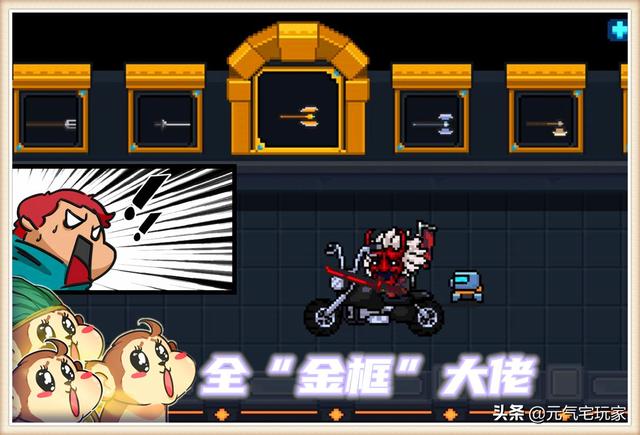近日最令人悲伤的事... 著名艺人高以翔在录制节目时意外晕倒,因工作人员抢救不及时而猝然离世你永远不知道明天和意外哪一个会先来,请收好这份必备心肺复苏急救教程,把握“黄金4分钟”,关键时刻抢救生命,我来为大家科普一下关于心肺复苏的黄金救命时间是几分钟?以下内容希望对你有帮助!

心肺复苏的黄金救命时间是几分钟
近日最令人悲伤的事... 著名艺人高以翔在录制节目时意外晕倒,因工作人员抢救不及时而猝然离世。你永远不知道明天和意外哪一个会先来,请收好这份必备心肺复苏急救教程,把握“黄金4分钟”,关键时刻抢救生命。
Hello, in this HealthSketch, we want to talk to you about CPR, which stands for Cardiopulmonary Resuscitation.
你好!这集的HealthSketch将与大家谈论CPR,即是“心肺复苏术”。
We use CPR when someone has collapsed and is not breathing, because it can keep people alive until emergency services arrive.
当有人昏倒及停止呼吸时,我们便须运用CPR来保着病者的生命,直至救护队抵达。
Learning these simple life-saving skills is as easy as ABC - all you have to remember is the "Doctor's ABC".
学懂这些简单的救生技能就如ABC一样容易,你只需要记着 “Doctor’s ABC”(D.R.A.B.C口诀)。
D is for Danger: First, look around carefully to make sure the area is safe for yourself and others before approaching.
D代表危险:首先,在接近病者前,小心环视四周确保现场环境对自己及他人都安全。
R is for Response: Shake them gently by the shoulders and ask them loudly "Are you alright?"If there is no response, you need to. . .
R代表反应:轻轻地摇晃病者的肩膀及大声问“你还好吗?” 如病者没有反应,你需要……
S: Shout for help, as any assistance will be helpful. A is for Airway: Gently tilt the head back like this, to open up the airway.
S:呼喊求助,因为任的何协助也会有帮助。A代表气道: 轻轻把头这样往后倾,来把气道打开。
B is for Breathing: Look, Listen and Feel for signs of normal breathing: LOOK for normal chest movements, LISTEN for normal breathing sounds and try to FEEL their breath against your face.
B代表呼吸,寻找,聆听和感觉正常呼吸的迹象:寻找正常的胸部动静,聆听正常的呼吸声音,并尝试感觉病者对着你脸上的呼吸。
Do this for no more than 10 seconds.
这样做不超过10秒。
If there is no sign of breathing, or if they are breathing in an unusual, noisy way, we need to start CPR. First, make sure that an ambulance is on its way.
如果没有呼吸的迹象,或者他们以不寻常,大声的方式呼吸,我们需要开始心肺复苏术。首先确认救护车已在路上。
If you have someone else with you, ask them to make the call.
如有其他人在场,要求他们打电话求助。
Putting the phone on speaker mode is useful as the ambulance service can talk you through the steps.
将电话置于扬声器模式,因为救护员可告诉你所需步骤。
C is for Circulation: Circulation means the flow of blood around the body, and when the heart stops pumping, we need to take over this role by pushing down hard and fast on the chest.
C代表血液循环:血液循环是指身体周围的血液流动,当心脏停止泵送血液时,我们需要通过在胸部上快速下压来代替这功能。
Start by placing the heel of one hand at the centre of the person's chest and interlock your fingers like this.
首先将手跟放在病者的胸部中央,然后像这样互锁你的手指。
With arms straightened, press down hard and fast, letting the chest come back up fully each time.
手臂伸直,快速有力地按下,让胸部每次都完全恢复上升。
Fast means around 2 times every second (metronome sound) and hard means that the chest needs to go down by about 5 centimetres.
快速即是每秒大约2次 ,而有力按下即是胸部需要下降大约5厘米。
This might sound a lot but you do need to push hard for it to be effective.
这听起来好像很多,但你确实需要用力按压才有效。
If you have been trained, you can give 2 'rescue breaths' after every 30 compressions, as this helps provide some oxygen.
如果你接受过训练,可以在每30次按压后给予2次“人工呼吸”,这有助于为病者提供一些氧气。
However, if you have not been trained or are not comfortable, just keep going with 'Hands-only' continuous chest compressions.
然而,如果你没有受过训练或感到别扭,只需继续用手连续按压胸部。
If someone else is with you, swap over if you begin to feel tired, and don't stop until either a health professional takes over, or the person is definitely breathing normally.
如你开始感到疲劳,让其他在场人士帮忙,不要停止按压,直到专业救护人员接手或确定病者能正常呼吸为止。
Sometimes, we can add another step – "D".
有时,我们可添加另一步骤——“D”。
D is for Defibrillation, which is about delivering a shock to restart the heartbeat.
D代表除颤,这是通过提供电击以重新启动心跳。
Some public areas and workplaces have an easy-to-use defibrillator on site, called an Automatic External Defibrillator, or AED. Automatic means that it is the machine that decides what to do, so you can't go wrong, and it even talks you through the steps.
一些公共场所和工作场所有易于使用的除颤器,称为Automatic External Defibrillator (自动体外除颤器)或AED。这机器被称为自动体外除颤器是因为它决定应该要做什么,所以你不会出错,它甚至会引导你做所需步骤。
If there is no AED available, keep going with CPR until the ambulance arrives.
如果没有AED可用,继续施用CPR直到救护车到达。
That's it!
就是这样!
So to recap: remember DR'S ABC and if you have it, D. That's D for Danger, R for response.
总括来说:大家应该还记着记着DR’S ABC,即D代表危险,R代表反应。
,




